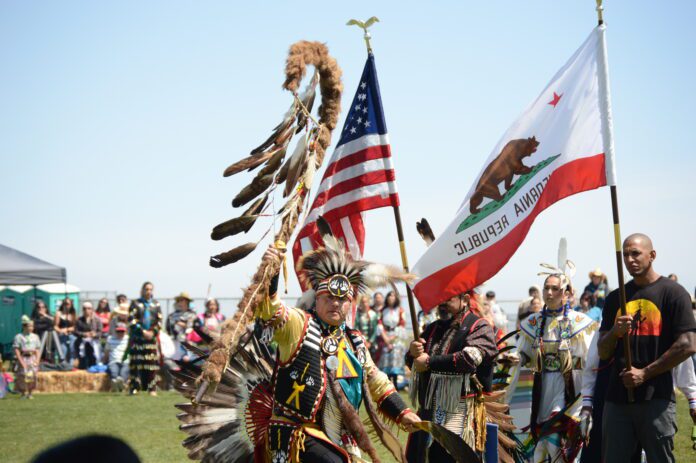
Tribes from across North America unite for a weekend of celebration and ceremony
By Emmanuel Luissi
Special to The Malibu Times
The 24th annual Chumash Day Powwow and Intertribal Gathering brought powerful storytelling and cultural celebration to Malibu Bluffs Park over two days of traditional music, singing, and dancing, vibrant and intricate clothing, tribal ceremonies, and prayer.
Despite the event being named after the Chumash, various tribes and nations from across North America were represented, equally sharing recognition as the original natives of their respective lands.
The tribesmen and women were united in the dance circle in the heart of the park, with the circle signifying Mother Earth and everyone’s connection to the land, and each tribe in attendance was recognized by the uniting symbol of the Eagle staff, held by Ricky Two Bears.
Celebratory dances brought joy and smiles to the circle and social dances brought different styles of dances and clothing styles to the forefront of the event,
Chumash and Fernandeño Tataviam Elder Beverley Folkes, who has participated in each of the 24 iterations of the Chumash Day powwow, said she looks forward to reconnecting with old friends and fellow tribes on that yearly weekend of celebration.
“Oh it’s wonderful,” Folkes said. “It builds camaraderie among all tribes and that’s what it’s all about. There’s no one tribe that feels superior, we’re all celebrated the same.”
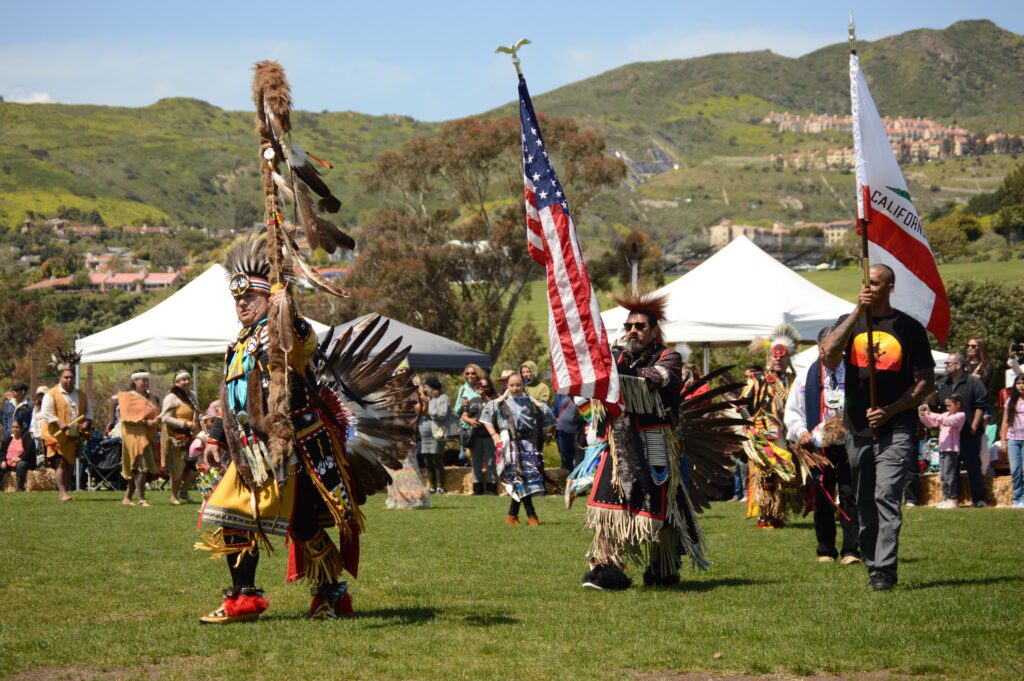
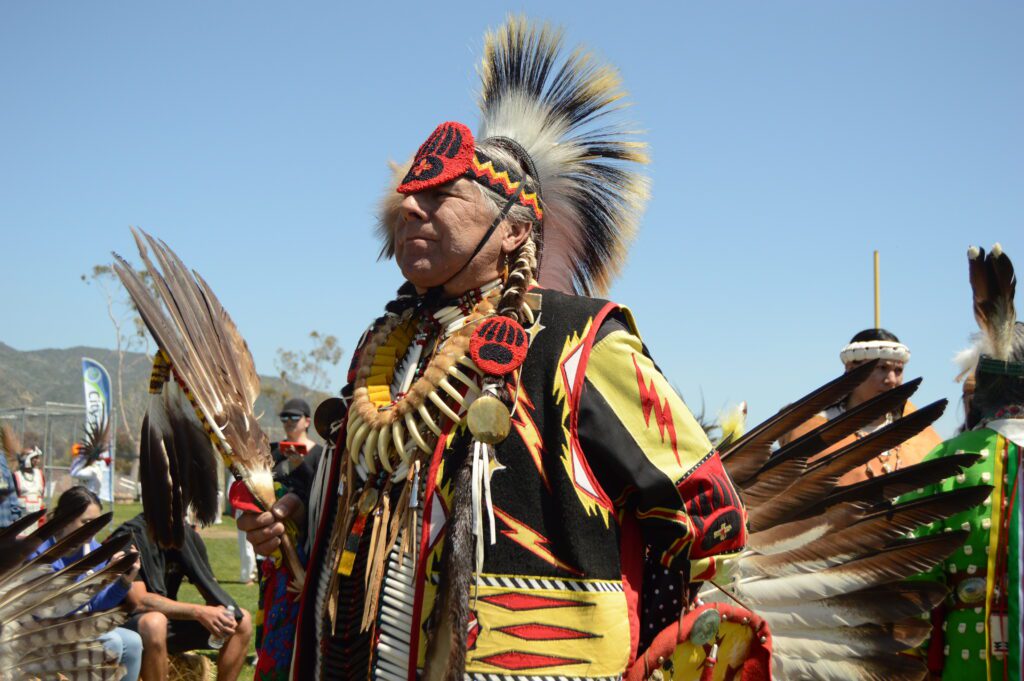
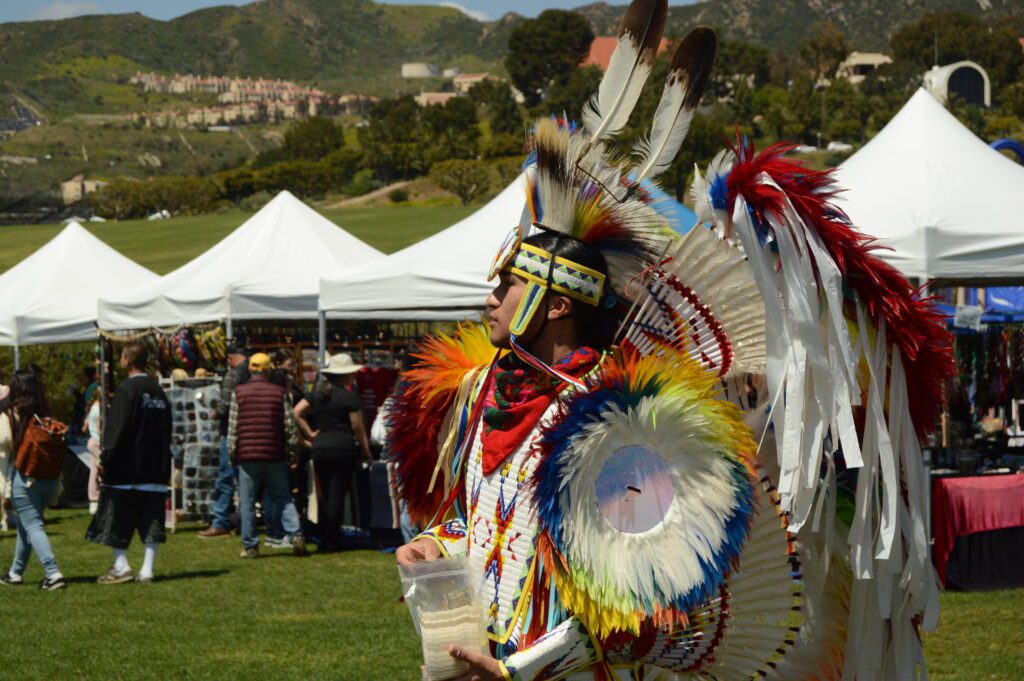
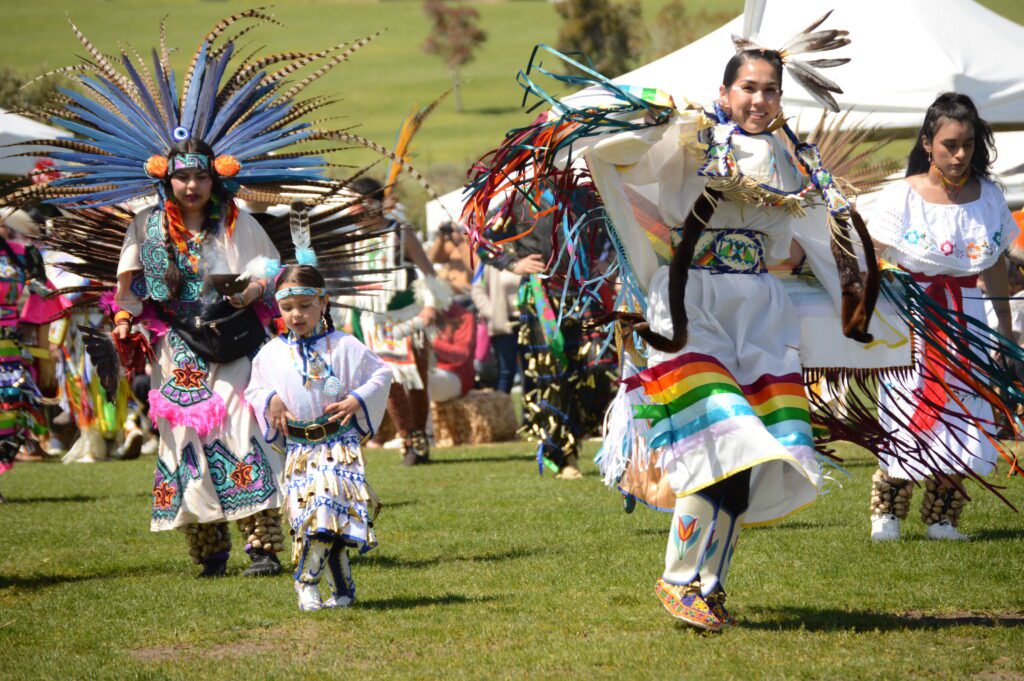
The event succeeded in bringing hundreds out to the park to socialize, observe, and celebrate native cultures, and Folkes said it’s inspiring to see how strongly the celebration has grown and been received by the city.
“It’s an exciting time,” she said. “That a community like Malibu has supported the powwow for this long says something. It’s a feather in their cap, the city of Malibu’s cap.”
A theme across the many representatives of different tribes was the importance put on the preservation of their cultures and traditions.
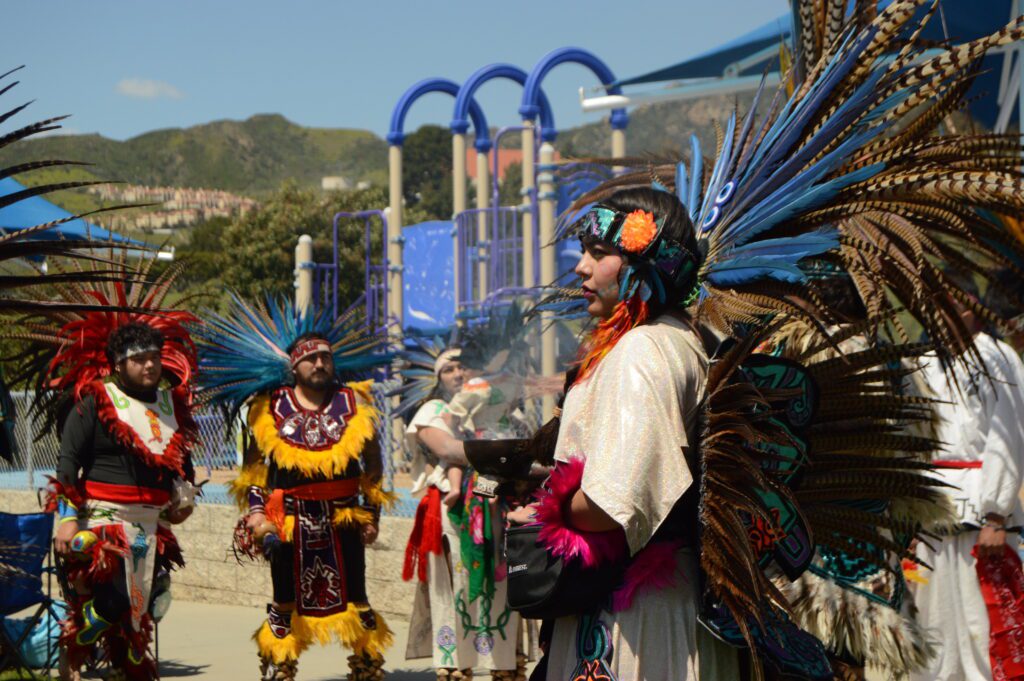
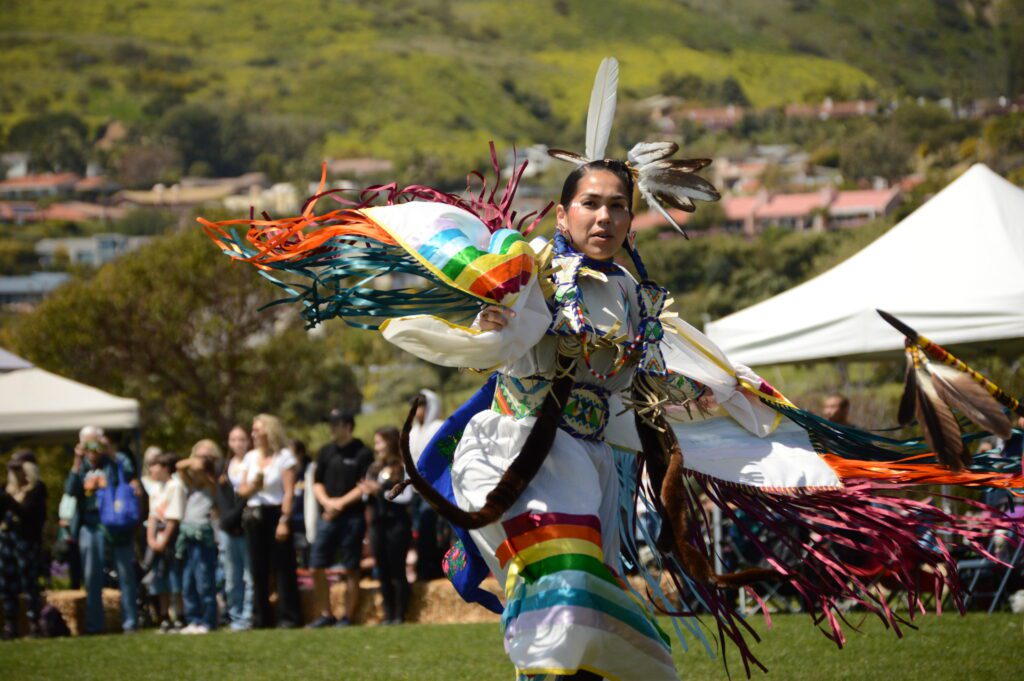
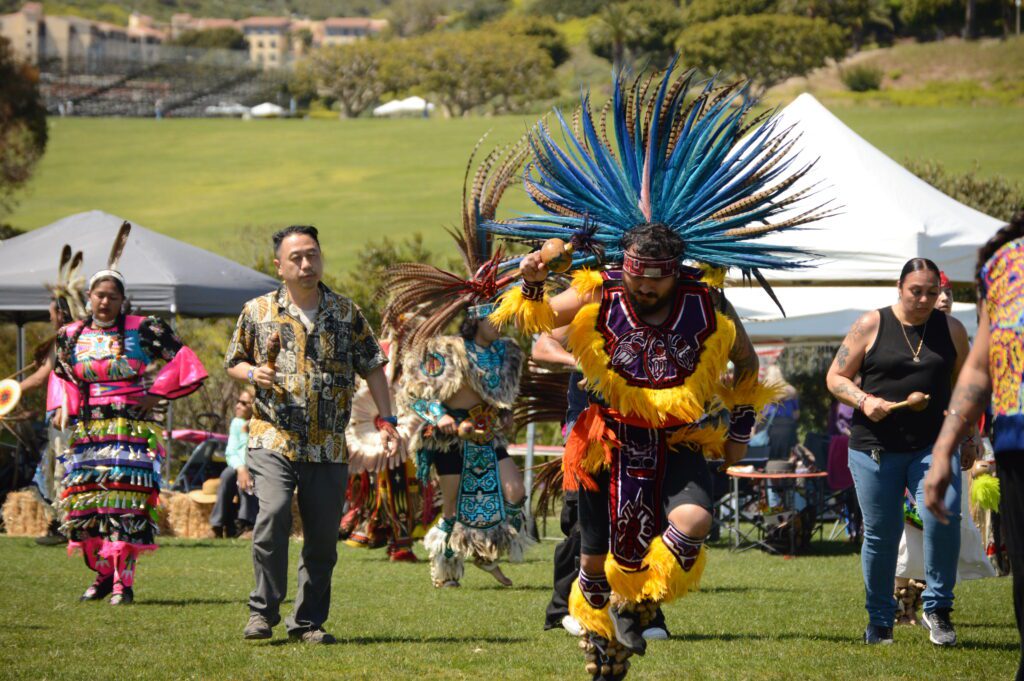
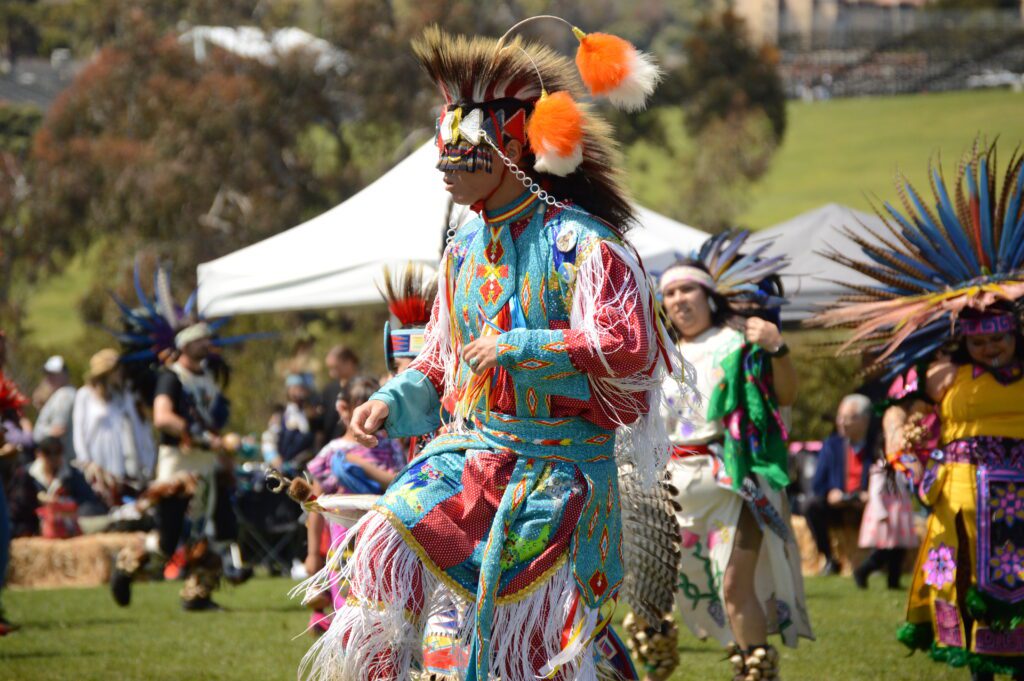
Anthony Loupe is a member of the Chumash tribe, and carried the California state flag in the Grand Entry ceremony. He explained the opportunity to represent his people was very important to him.
“I have never been so involved ever in my life,” he said. “It’s intimidating, but as part of your journey a time comes to step up and lead the next generation in ceremonies, traditions, and values that we must hold.”
Ba’ac Garcia is a professional fancy dancer and a member of the Tohono O’odham nation based out of Arizona. Garcia was among some of the younger dancers at the powwow and he shared his thoughts on the importance of new generations becoming involved with the nation’s cultures and traditions.
“The younger kids need to be part of events like this because here we bring the culture alive,” Garcia said. “The powwows show younger generations that we are still here. We show them that they are native Americans as well and that they could express their culture in their ways as well.”
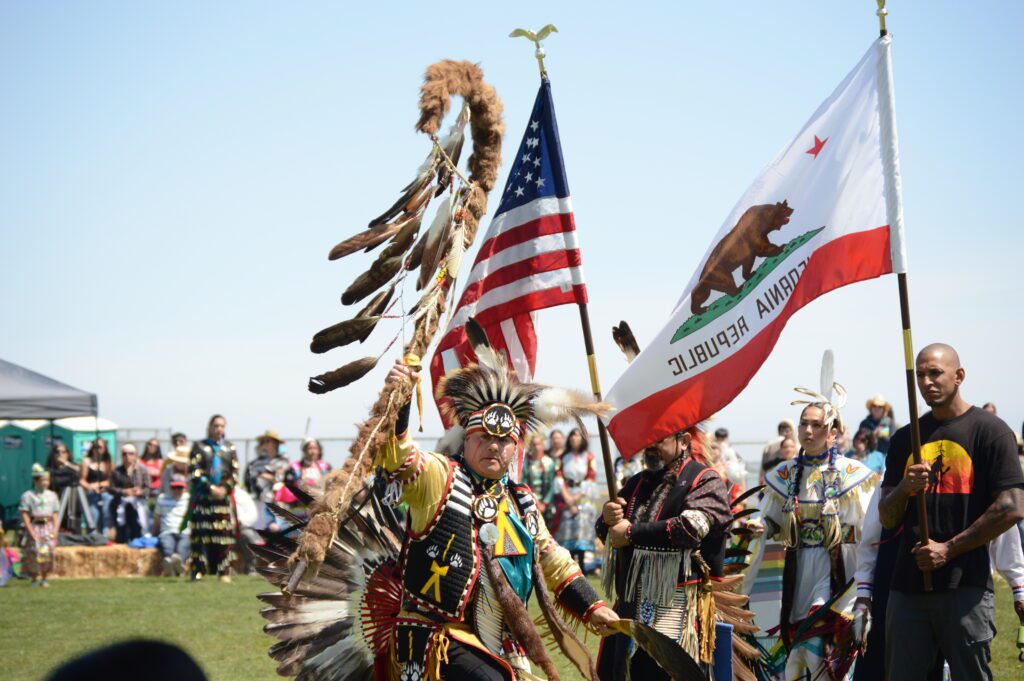
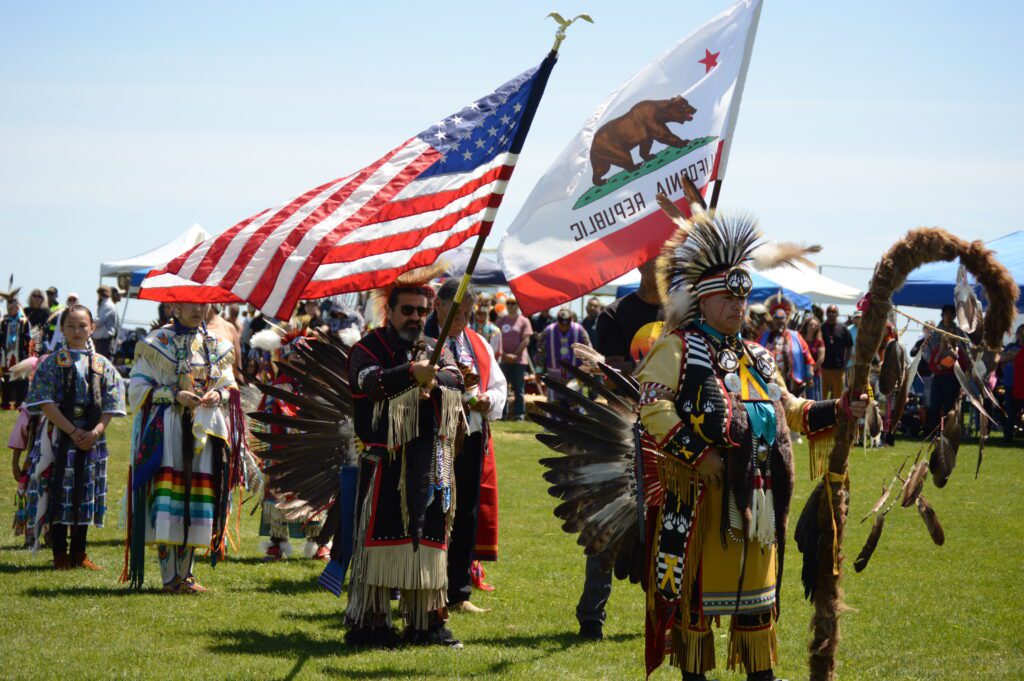
Despite the evolution and growth of the Chumash Day powwow, some tribe members fear the preservation and celebration of cultures could dwindle if engagement could not be created among the younger generations of Native Americans.
Mari Huehueicoyotl, a dancer and member of an Aztec tribe said she has attended the powwow for the last seven years, and has noticed participation in her tribe’s people has declined. She expressed a desire to spread education on native peoples from Mexico and involve younger generations in the celebration and preservation of their history and traditions.
She said the powwow continues to be an event of unity and cultural education and said the event offers a unique opportunity to explore diverse cultures and understand why these cultures must be preserved.
“Here we have an appreciation for culture and a respect for our history, somewhere where we find common ground in our struggles and eliminate divisions among us that would usually arise between two countries like the United States and Mexico,” Huehueicoyotl said. “We recognize here that all cultures are beautiful and the opportunity to learn about the lives and cultures of others is special and brings us together in a brotherhood.”
The weekend gives tribes the platform to celebrate different cultures, but also allows for educated tribe members to advocate for the rights and empowerment of marginalized peoples.
Kiara Love Flores, head woman, dancer and member of the Kuupangaxwichem tribe of Southern California, said powwows like this give communities that may not be educated on the plight of native peoples an opportunity to get informed, become supporters and advocates for native peoples, and understand the significance of their history and influence.
“A hundred years ago, if an event like this was held, we would have been killed or arrested,” Flores said. “It’s important to continue traditions and support native peoples because, believe it or not, [we] are always being challenged of [our] rights to even gather like this today and many people may not know that’s true.”
